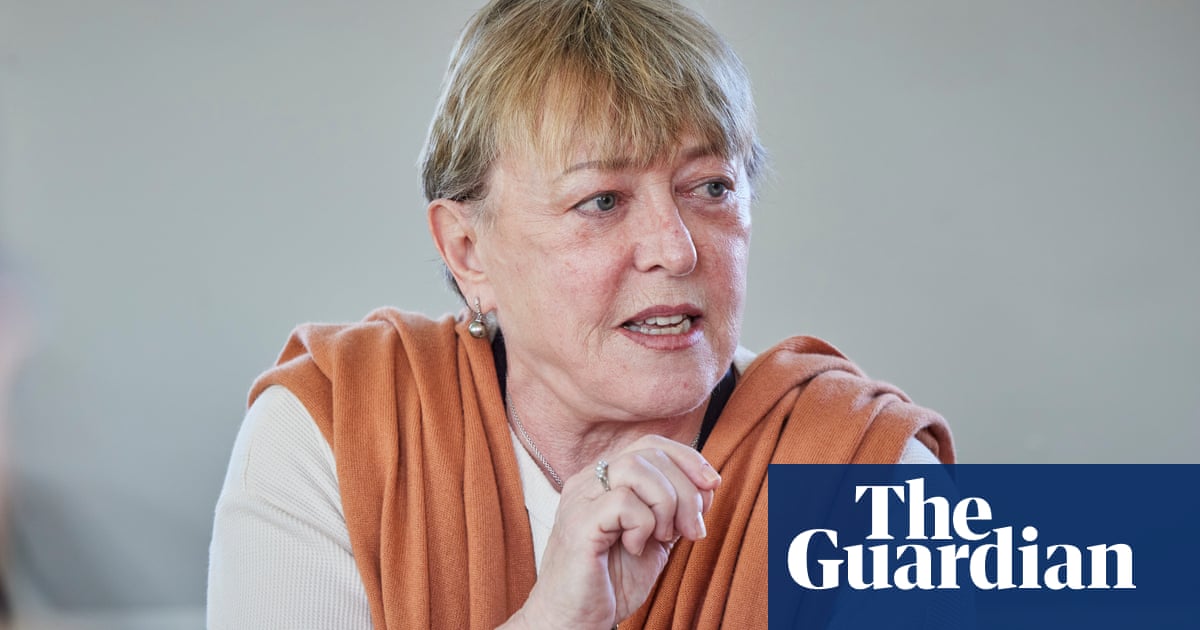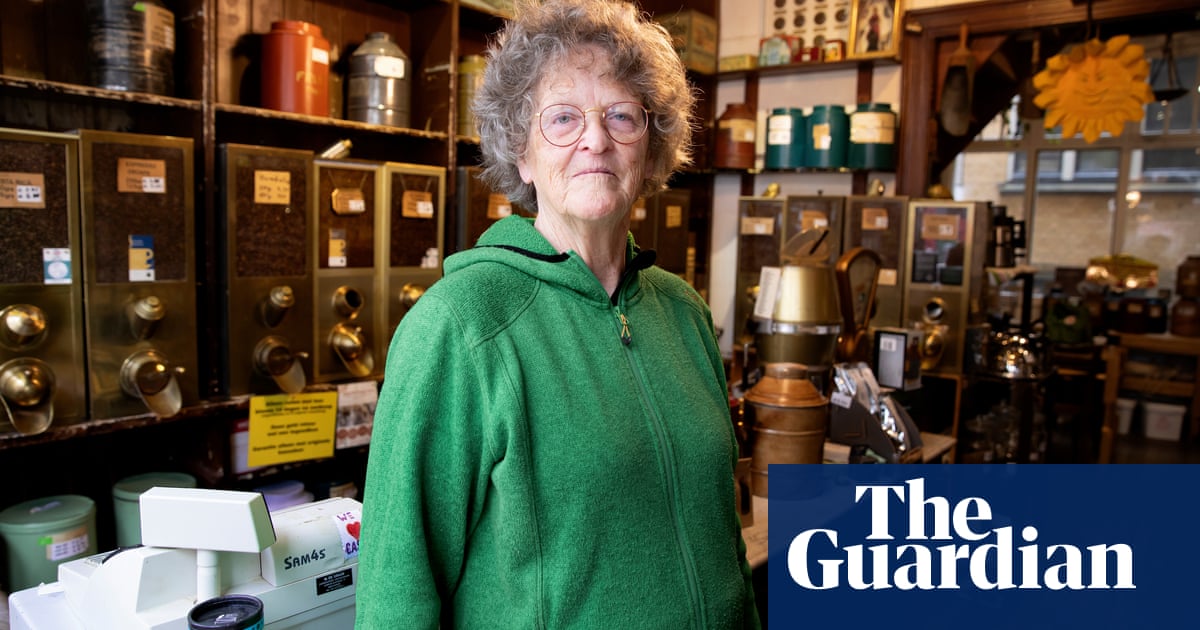Introduction: BoE's Ramsden says inflation risks no longer to downside
Good morning, and welcome to our rolling coverage of business, the financial markets and the world economy.
A Bank of England deputy governor is banging the drum for taking a “gradual and careful approach” to interest rate cuts, given the twin threats of inflationary pressures and weak growth.
But, Sir Dave Ramsden isn’t ruling out sharper cuts, if needed, while also flagging a rising risk that inflation could run over target.
Ramsden is speaking right now at the Bureau for Economic Research, at South Africa’s Stellenbosch University, and he reveals he is now “less certain” that the UK labour market will continue to cool, easing inflationary pressures.
Ramsden says:
Because of the evidence of recent months I no longer think that risks to hitting the 2% inflation target sustainably in the medium term are to the downside.
Instead, I think they are two sided, reflecting the potential for more inflationary as well as disinflationary scenarios. I do, though, think the core disinflationary process remains intact.
Ramden notes that UK inflation rose to 3% in January, adding:
UK inflation is expected to rise in the short term to around 3.7% and is then forecast to fall back to close to the 2% target in the second half of the forecast period.
BoE's Ramsden: Compared with my position throughout last year, I am now less certain than I was about the outlook for the UK labour market
— FinancialJuice (@financialjuice) February 28, 2025That change of mind follows the latest unemployment report, which showed that UK wage growth accelerated to 6% at the end of last year – three times as fast as the Bank’s 2% inflation target.
Those fast-rising earnings could deter Bank policymakers from cutting interest rates swiftly during 2025 – it has already made one cut, earlier this month, bringing Bank rate down to 4.5%.
With a nod to his audience, Ramsden says:
As a keen mountain climber, I was very pleased when the MPC’s policy of maintaining Bank rate at a level of 5.25 percent from August 2023 to August 2024 became associated with South Africa’s Table Mountain.
The ‘Table Mountain’ phase was when the Bank left interest rates on hold at 5.25%, from summer 2023 to summer 2024, before making three cuts since.
Stretching the mountaineering analogy, Ramsden says:
I know from my own experience that great care needs to be taken on the descent from a mountain; tiredness often sets in, concentration can lapse, obstacles have to be bypassed and at the end of a long day the weather can deteriorate.
A gradual and careful approach is always needed on the way down a mountain to ensure a safe descent and a successful outcome. But that doesn’t always mean the descent has to be slow. There may be circumstances when a slower than expected descent is justified but there will also be times when conditions require that the pace has to quicken.
Ramsden is a relatively dovish member of the Bank’s monetary policy committee. He was one of three policymakers who voted for a rate cut in December (along with Swati Dhingra and Alan Taylor), but they were outvoted by the other six.
Today, Ramsden explains that he was motivated by worries that wages might slow sharply:
My concerns about the risks from this scenario playing out were what led me to vote in the minority for a 25bp cut in Bank rate at our December 2024 meeting.
The agenda
-
7am GMT: Nationwide’s UK house price index for February
-
7am GMT: Bank of England deputy governor Dave Ramsden gives speech on monetary policy at Stellenbosch University
-
7.45am GMT: Final estimate of French GDP for Q4 2024
-
1pm GMT: German inflation report for February
-
1.30pm GMT: US PCE inflation measure for January
Key events Show key events only Please turn on JavaScript to use this feature
Ramsden: trade uncertainty may be hurting UK economy
Sir Dave Ramsden has also warned that uncertainty over trade policy could already be hurting the UK economy.
He tells Stellenbosch University that geopolitical uncertainties have been heightened for several years, adding:
In addition, there is significant uncertainty around the next steps the current US administration will take with regards to tariffs, and the potential actions of other countries in response.
At present we do not have any specific enough information to build into our forecasting models. However, it is clear that uncertainty about global trade policy is already heightened.
He then produces a chart, showing that trade policy uncertainty reached record highs in January 2025:

Ramsden adds:
And this may already be impacting on the global and UK economy via financial markets and via confidence channels.
Nationwide: House price growth remains solid in February
While Dave Ramsden’s speaking in South Africa, UK lender Nationwide was reporting that house price growth “remains solid in February”.
Nationwide’s latest house price report shows that prices rose by 0.4% this month, up from the 0.1% rise reported in January, and the sixth monthly rise in a row.
But, the annual rate of house price growth dipped to 3.9% for the year to February, compared with 4.1% in January.
According to lender @AskNationwide house prices rose for a sixth consecutive month in Feb 2025, spurred on by first time buyers, keen to make the stamp duty deadline and cash buyers taking advantage of desperate landlords wanting a clean break. The average property price now sits… pic.twitter.com/FA1MB4kDig
— Emma Fildes (@emmafildes) February 28, 2025Robert Gardner, Nationwide’s chief economist, says:
“Housing market activity has also remained resilient in recent months, despite ongoing affordability challenges. Indeed, the second half of 2024 saw a noticeable pick up in total housing transactions, which were up 14% compared with the same period in 2023.
However, taking 2024 as a whole, transactions were still modestly (6%) lower than the levels prevailing before the pandemic struck in 2019.

Introduction: BoE's Ramsden says inflation risks no longer to downside
Good morning, and welcome to our rolling coverage of business, the financial markets and the world economy.
A Bank of England deputy governor is banging the drum for taking a “gradual and careful approach” to interest rate cuts, given the twin threats of inflationary pressures and weak growth.
But, Sir Dave Ramsden isn’t ruling out sharper cuts, if needed, while also flagging a rising risk that inflation could run over target.
Ramsden is speaking right now at the Bureau for Economic Research, at South Africa’s Stellenbosch University, and he reveals he is now “less certain” that the UK labour market will continue to cool, easing inflationary pressures.
Ramsden says:
Because of the evidence of recent months I no longer think that risks to hitting the 2% inflation target sustainably in the medium term are to the downside.
Instead, I think they are two sided, reflecting the potential for more inflationary as well as disinflationary scenarios. I do, though, think the core disinflationary process remains intact.
Ramden notes that UK inflation rose to 3% in January, adding:
UK inflation is expected to rise in the short term to around 3.7% and is then forecast to fall back to close to the 2% target in the second half of the forecast period.
BoE's Ramsden: Compared with my position throughout last year, I am now less certain than I was about the outlook for the UK labour market
— FinancialJuice (@financialjuice) February 28, 2025That change of mind follows the latest unemployment report, which showed that UK wage growth accelerated to 6% at the end of last year – three times as fast as the Bank’s 2% inflation target.
Those fast-rising earnings could deter Bank policymakers from cutting interest rates swiftly during 2025 – it has already made one cut, earlier this month, bringing Bank rate down to 4.5%.
With a nod to his audience, Ramsden says:
As a keen mountain climber, I was very pleased when the MPC’s policy of maintaining Bank rate at a level of 5.25 percent from August 2023 to August 2024 became associated with South Africa’s Table Mountain.
The ‘Table Mountain’ phase was when the Bank left interest rates on hold at 5.25%, from summer 2023 to summer 2024, before making three cuts since.
Stretching the mountaineering analogy, Ramsden says:
I know from my own experience that great care needs to be taken on the descent from a mountain; tiredness often sets in, concentration can lapse, obstacles have to be bypassed and at the end of a long day the weather can deteriorate.
A gradual and careful approach is always needed on the way down a mountain to ensure a safe descent and a successful outcome. But that doesn’t always mean the descent has to be slow. There may be circumstances when a slower than expected descent is justified but there will also be times when conditions require that the pace has to quicken.
Ramsden is a relatively dovish member of the Bank’s monetary policy committee. He was one of three policymakers who voted for a rate cut in December (along with Swati Dhingra and Alan Taylor), but they were outvoted by the other six.
Today, Ramsden explains that he was motivated by worries that wages might slow sharply:
My concerns about the risks from this scenario playing out were what led me to vote in the minority for a 25bp cut in Bank rate at our December 2024 meeting.
The agenda
-
7am GMT: Nationwide’s UK house price index for February
-
7am GMT: Bank of England deputy governor Dave Ramsden gives speech on monetary policy at Stellenbosch University
-
7.45am GMT: Final estimate of French GDP for Q4 2024
-
1pm GMT: German inflation report for February
-
1.30pm GMT: US PCE inflation measure for January

.png) 1 month ago
15
1 month ago
15













































